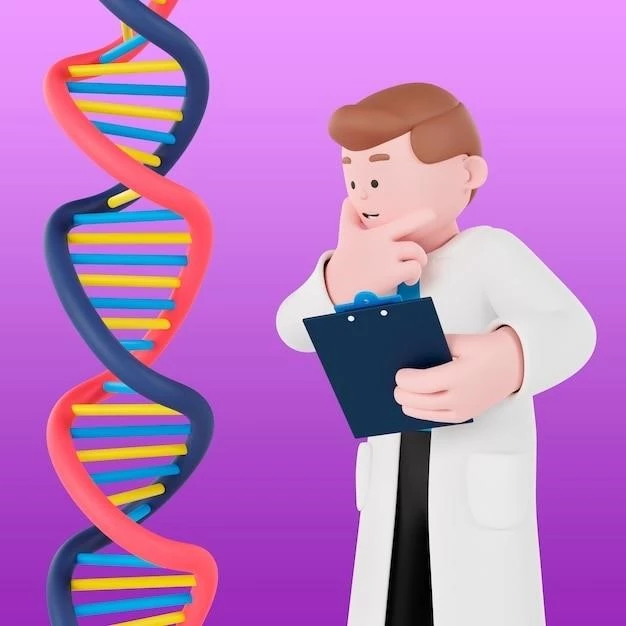Symptoms of 5 Alpha Reductase 2 Deficiency
Ambiguous Genitalia
Ambiguous genitalia in 5 Alpha Reductase 2 Deficiency refer to atypical appearance of the genitalia where it is not clearly distinguishable as male or female. This can include a combination of male and female characteristics٫ leading to challenges in assigning a definitive gender identity.
Undescended Testes
Undescended testes, a symptom of 5 Alpha Reductase 2 Deficiency٫ occur when one or both testes fail to move from the abdomen into the scrotum before birth. This condition may impact fertility and require medical evaluation and treatment to correct.
Micropenis
Micropenis, a common symptom of 5 Alpha Reductase 2 Deficiency, refers to an abnormally small penis size in newborn males. It is a physical sign of this condition and often prompts medical evaluation and management to address associated concerns.
Hypospadias
Hypospadias, seen in 5 Alpha Reductase 2 Deficiency, manifests as a condition where the opening of the urethra is on the underside of the penis instead of at the tip. This congenital anomaly may require surgical intervention for correction and proper urinary function.
Gynecomastia
Gynecomastia, a notable symptom of 5 Alpha Reductase 2 Deficiency, is the abnormal enlargement of breast tissue in males. This condition can cause psychological distress and may necessitate medical evaluation and potential treatment options to manage this physical manifestation.
Treatment Options for 5 Alpha Reductase 2 Deficiency
Hormone Replacement Therapy
Hormone Replacement Therapy (HRT) is used in 5 Alpha Reductase 2 Deficiency to adjust androgen levels. It involves administering synthetic hormones to help regulate secondary sexual characteristics and address hormonal imbalances٫ promoting optimal physical development and well-being.
Genital Surgery
Genital surgery is a treatment modality in 5 Alpha Reductase 2 Deficiency to address anatomical concerns. It aims to reconstruct genitalia to align with the identified gender, improve functionality, and enhance quality of life through surgical interventions conducted by skilled healthcare professionals.
Psychological Support
Psychological support plays a crucial role in managing 5 Alpha Reductase 2 Deficiency. It involves counseling and therapy to help individuals and families cope with emotional challenges, navigate gender identity issues, and enhance mental well-being while addressing the psycho-social aspects of the condition.

Genetic Causes of 5 Alpha Reductase 2 Deficiency
Mutations in the SRD5A2 gene
Mutations in the SRD5A2 gene lead to 5 Alpha Reductase 2 Deficiency. These genetic changes affect the enzyme responsible for converting testosterone to dihydrotestosterone, causing abnormalities in male sexual development. Understanding these mutations is essential for diagnosis and treatment planning.
Inheritance Patterns
5 Alpha Reductase 2 Deficiency follows an autosomal recessive inheritance pattern. Both parents must carry a mutated SRD5A2 gene to pass on the condition to their child. Understanding the genetic transmission is crucial for family planning and genetic counseling to manage the risk of recurrence.
Genetic Counseling
Genetic counseling is essential for individuals and families affected by 5 Alpha Reductase 2 Deficiency. It provides information on the genetic risk factors, inheritance patterns, and family planning options. Genetic counselors offer support, education, and guidance to help navigate the complexities of genetic conditions.
Hormonal Imbalance in 5 Alpha Reductase 2 Deficiency
Reduced Dihydrotestosterone (DHT) Levels
5 Alpha Reductase 2 Deficiency results in reduced DHT levels due to the enzyme’s impaired function. DHT is crucial for male sex development, and its deficiency contributes to the ambiguous genitalia and other physical manifestations seen in affected individuals.
Elevated Testosterone Levels
5 Alpha Reductase 2 Deficiency can lead to elevated testosterone levels as the hormone cannot be effectively converted to DHT. This hormonal imbalance contributes to the development of ambiguous genitalia and other physical characteristics associated with the condition.
Imbalance in Androgen Pathways
5 Alpha Reductase 2 Deficiency results in an imbalance in androgen pathways, particularly the conversion of testosterone to DHT. This disruption affects normal male sexual development and can lead to a range of physical symptoms characteristic of the condition.
Impact of 5 Alpha Reductase 2 Deficiency on Fertility
Infertility in Individuals with Complete Deficiency
Individuals with complete 5 Alpha Reductase 2 Deficiency often experience infertility due to the impact on male sexual development and hormone imbalance. The inability to produce adequate levels of dihydrotestosterone can affect sperm production and fertility potential, requiring tailored reproductive interventions.
Challenges in Reproductive Health
5 Alpha Reductase 2 Deficiency poses challenges in reproductive health by impacting male fertility. The condition may require specialized fertility treatments to address infertility issues and support individuals in achieving their desired reproductive goals٫ emphasizing the need for comprehensive care and counseling.
Assisted Reproductive Techniques
Assisted reproductive techniques are often employed in individuals with 5 Alpha Reductase 2 Deficiency to overcome fertility challenges. Options like in vitro fertilization (IVF) or intracytoplasmic sperm injection (ICSI) can help individuals and couples with this condition achieve pregnancy and build their families with appropriate medical support and guidance.
Diagnosis of 5 Alpha Reductase 2 Deficiency
Genetic Testing
Genetic testing plays a key role in diagnosing 5 Alpha Reductase 2 Deficiency by identifying mutations in the SRD5A2 gene. This analysis helps confirm the genetic cause of the condition, guide treatment decisions, and offer valuable information for family planning and genetic counseling.
Hormone Level Analysis
Hormone level analysis is crucial in diagnosing 5 Alpha Reductase 2 Deficiency, revealing deviations in testosterone and dihydrotestosterone levels. Assessing hormone profiles aids in confirming the hormonal imbalance, guiding treatment strategies, and assessing the impact on reproductive and sexual development in affected individuals.
Physical Examination
A comprehensive physical examination aids in diagnosing 5 Alpha Reductase 2 Deficiency by assessing external genitalia, secondary sexual characteristics, and overall development. Physical findings, combined with genetic and hormonal analysis, provide a holistic understanding of the condition for accurate diagnosis and tailored management.
Management of 5 Alpha Reductase 2 Deficiency
Multidisciplinary Approach
Managing 5 Alpha Reductase 2 Deficiency requires a multidisciplinary approach involving endocrinologists, geneticists, urologists, and mental health professionals. Comprehensive care addresses medical, genetic, psychological, and social aspects for optimal treatment outcomes and quality of life enhancements in affected individuals.
Long-term Follow-up Care
Long-term follow-up care is essential in 5 Alpha Reductase 2 Deficiency to monitor treatment responses, manage complications, and address evolving healthcare needs. Regular medical assessments, hormone level checks, and psychosocial support ensure ongoing well-being and adjustment to any changes in health status.
Patient Education and Support
Providing patient education and support is crucial in 5 Alpha Reductase 2 Deficiency. Empowering individuals with information about their condition, treatment options, and available resources fosters self-management and ensures an informed decision-making process. Ongoing support helps individuals navigate challenges and promote overall well-being.
Research Advances in 5 Alpha Reductase 2 Deficiency
Novel Therapeutic Targets
Exploration of novel therapeutic targets in 5 Alpha Reductase 2 Deficiency promises innovative treatment avenues. Research is focusing on developing targeted interventions to address hormone imbalances effectively, aiming to improve symptom management and enhance the quality of life for individuals affected by this condition.
Gene Therapy Developments
Ongoing gene therapy developments in 5 Alpha Reductase 2 Deficiency offer potential genetic interventions to correct enzyme deficiencies. Research aims to refine gene delivery methods for restoring enzymatic activity, presenting a promising avenue for future treatment strategies and providing hope for improved therapeutic outcomes in affected individuals.
Clinical Trials and Future Directions
Current focus on clinical trials and future directions in 5 Alpha Reductase 2 Deficiency research aims to enhance treatment efficacy and understand the condition better. Investigational therapies and scientific endeavors anticipate improved management approaches and advancements that can potentially transform the care landscape for individuals with this rare genetic disorder.
